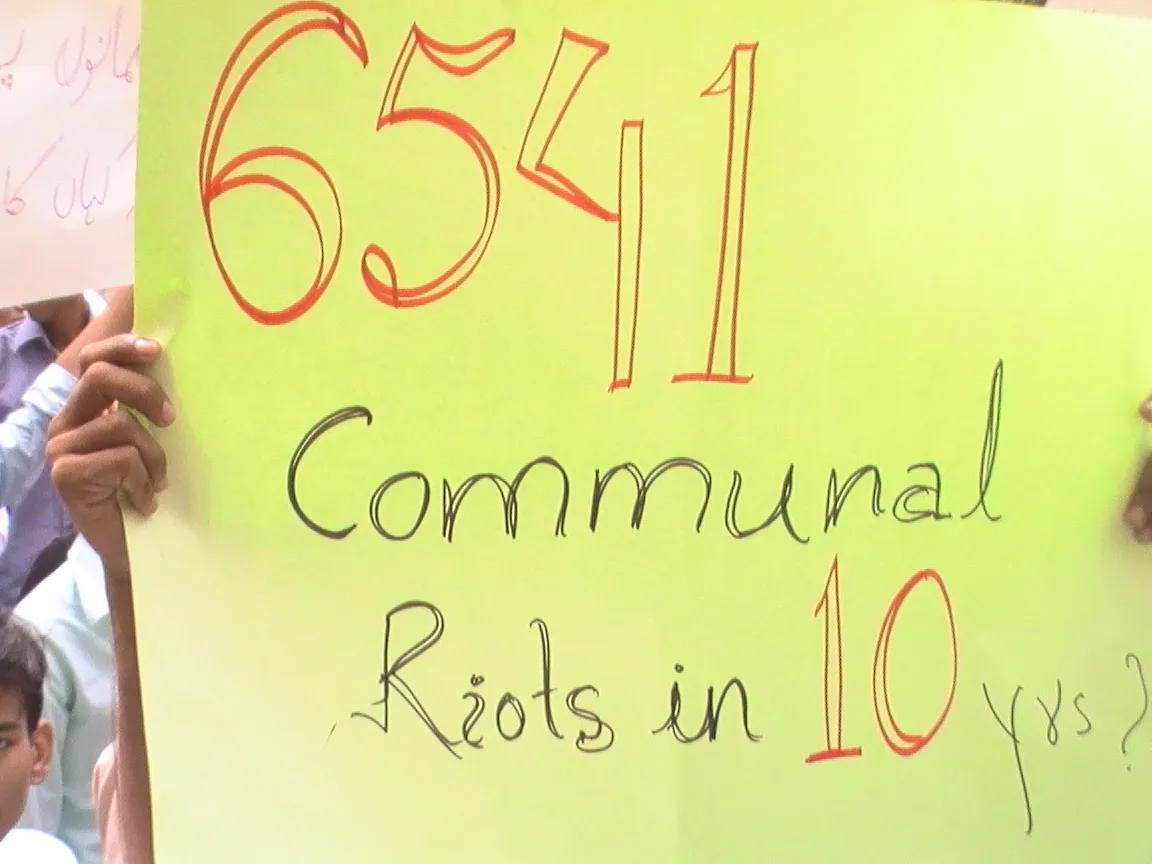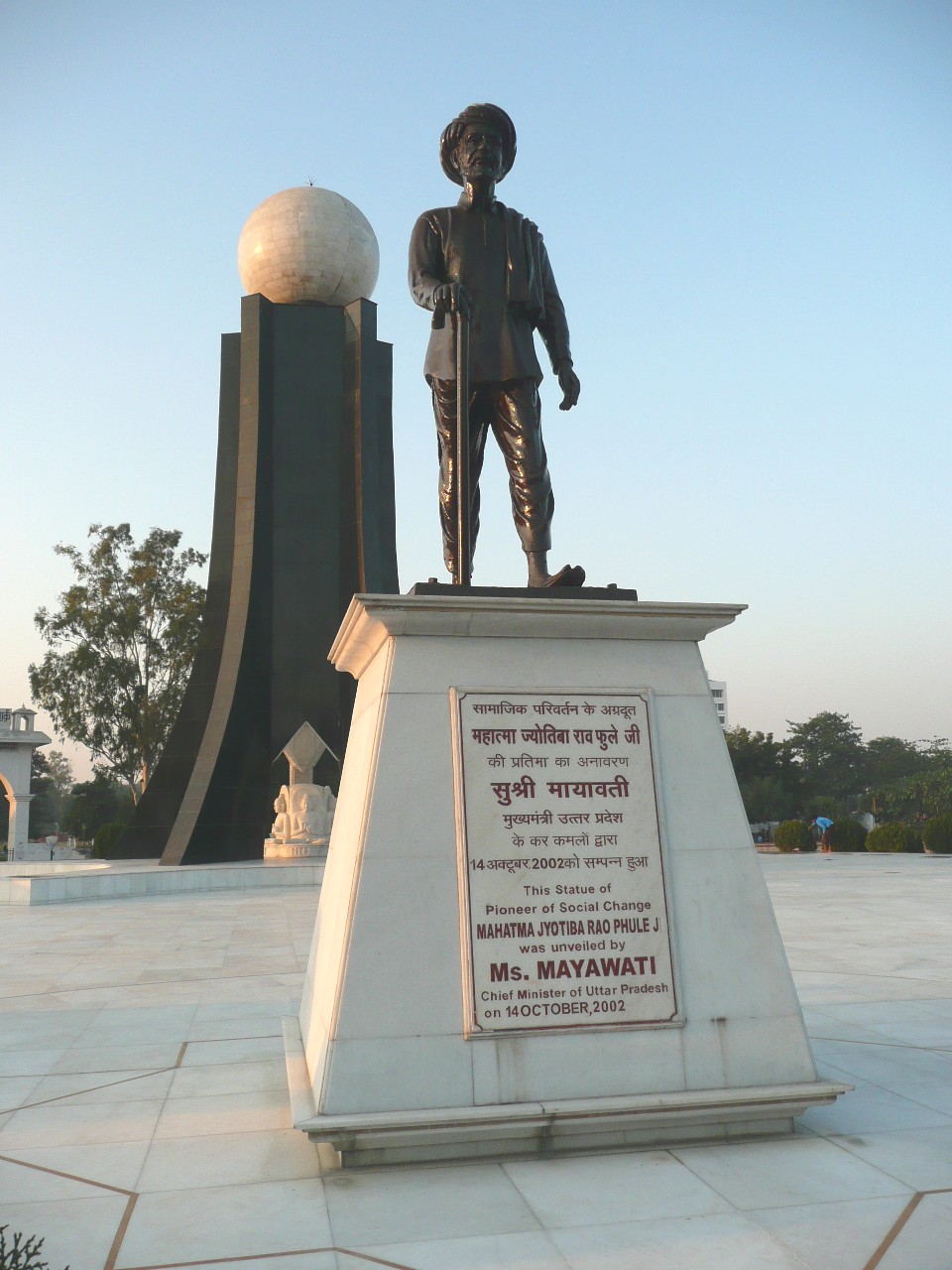Mahatma Jyotirao Phule
A Crusader for Social Justice
Mahatma Jyotirao Phule, a name etched in the annals of Indian history, stands as a towering figure in the social reform movement of the 19th century, a pivotal period in Indian history. Born in 1827, Phule dedicated his life to the eradication of societal injustices and became a beacon of hope for the oppressed classes in India.
Early Life and Education
Jyotirao Phule was born in Pune, Maharashtra, into a family belonging to the Mali caste, traditionally associated with gardening and flower-selling. Despite facing caste-based discrimination, Phule received his initial education due to his family’s relatively favorable economic circumstances. The injustices he witnessed during his formative years profoundly influenced his later work.
Mahatma Jyotirao Phule’s Crusade against Social Inequalities
Transformative Education Initiatives
Mahatma Jyotirao Phule’s pioneering commitment to education began in 1848 when he, alongside his wife Savitribai Phule, opened Pune’s first school for girls. This groundbreaking initiative faced significant opposition from traditional factions yet proved crucial in promoting the empowerment of women and lower caste individuals. Phule’s educational reforms extended beyond this school, influencing broader societal changes. His advocacy for education catalyzed not only individual empowerment but also prepared the societal groundwork necessary for future movements towards self-rule and freedom. This comprehensive approach to education helped dismantle entrenched barriers to equality, impacting the societal fabric at multiple levels.
Satyashodhak Samaj: A Beacon of Equality
In 1873, the establishment of the Satyashodhak Samaj marked another cornerstone of Phule’s mission. This organization transcended mere social gatherings; it became a sanctuary for the oppressed and a platform to disseminate the powerful idea that every individual, irrespective of caste, had intrinsic worth and rights. The Samaj’s activities were radical for their time, providing the socially ostracized with the knowledge and tools to dismantle the chains of exploitation.
Mahatma Jyotirao Phule’s Fight Against Caste Oppression
Phule’s crusade against caste discrimination was relentless. He not only voiced the concerns of the “Bahujans” or the majority population who were denied social stature but also instigated a cultural renaissance that questioned the very foundation of the caste hierarchy. His activism was not limited to speeches and writings; it was a lived practice that sought to redefine societal norms.
Championing Widow Rights and Remarriage
At a time when widowhood was synonymous with social death, Phule emerged as a defender of widow rights, advocating for their dignity and freedom to remarry. He recognized the double standards of a society that unjustly punished and secluded its widows and worked tirelessly to secure for them the right to a life of respect and choice post-bereavement.
Pioneering the Movement Against Child Marriage
Phule’s reformist zeal extended into the domestic sphere, where he took a firm stand against the practice of child marriage. He vociferously opposed this deeply entrenched tradition, recognizing the physical and psychological damages it inflicted on young girls. His advocacy was pivotal in initiating discourse on increasing the marriageable age for girls, emphasizing their right to childhood, education, and self-determination.
Elevating the Agrarian Community
Phule’s empathy was not confined to the educational or social domain; it embraced the economic realm as well. He became a vocal supporter of farmers’ rights, a group long marginalized by feudal practices and usurious moneylending. Understanding their crucial role in the backbone of India’s agrarian economy, he championed their cause, striving to enlighten them on the exploitative systems and encouraging them to stand up against these age-old injustices.
Literary Endeavors as Instruments of Change
In the battlefield of social reform, Phule wielded his pen with as much dexterity as he did his oratory skills. Through his literary contributions, most notably ‘Gulamgiri’ (Slavery), he addressed the social malaises of caste discrimination and untouchability. His writings were not just critiques but mobilizing forces that awakened the conscience of society, compelling it to introspect and reform, leaving an indelible mark on Indian history.
Mahatma Jyotirao Phule’s Quest for Universal Equality
Above all, Phule was an unwavering advocate for universal human rights. He tirelessly campaigned for an egalitarian society where liberty, equality, and fraternity were not mere ideals but tangible realities. His advocacy transcended the boundaries of caste and gender, reaching for a horizon where dignity and rights were accorded to all individuals unequivocally.
Jyotirao Phule’s Political Involvement
Phule’s quest for social reform led him to the political arena, where he worked to secure rights for the marginalized. He was an advocate for the peasant and worker classes and sought to represent their interests in the face of exploitation.
Interfaith Contemporaries in the Quest for Reform
Mahatma Jyotirao Phule’s work in the 19th century paralleled a broader movement of social reform that transcended religious lines, where both Christian and Muslim contemporaries contributed to shaping a progressive narrative in their respective communities.
Pandita Ramabai (1858–1922)
Among Christians, one of Phule’s notable contemporaries was Pandita Ramabai (1858–1922), a social reformer who, despite being born into a Brahmin Hindu family, later converted to Christianity. Like Phule, Ramabai was a staunch advocate for women’s education and emancipation. She founded the Mukti Mission in Pune, which provided sanctuary and education for young widows, drawing parallels to Phule’s own efforts to uplift marginalized women.
Sir Syed Ahmad Khan (1817–1898)
In the Muslim community, Sir Syed Ahmad Khan (1817–1898) was pioneering social and educational reforms. Although he predated Phule slightly, his contributions to Muslim society resonated with Phule’s initiatives. Khan established the Aligarh Muslim University, promoting modern education among Indian Muslims, just as Phule strived for educational access for lower castes and women. Both men understood the transformative power of education and sought to uplift their communities through knowledge.
These figures, among others, were integral in an era that saw various religious groups wrestling with the need for social progress while grappling with their own traditionalist factions. Their efforts were united by a common objective: to forge a path toward a more equitable society.
Comparing Legacy of Mahatma Jyotirao Phule and Sir Syed Ahmad Khan
Mahatma Phule’s Hindu Reformist Activities
Mahatma Jyotirao Phule’s transformative impact on Hindu society is a lasting testament to his pioneering efforts in the 19th century, which have had enduring effects on contemporary social norms. Renowned for his relentless advocacy for the education of women and the lower castes, Phule instigated significant changes that helped dismantle entrenched barriers to equality.
Phule’s commitment to education led to the establishment of the first school for girls in Pune in 1848, marking the beginning of a societal transformation in how education was perceived for women. This initiative laid the groundwork for future generations, contributing directly to a landscape where today, girls often outperform boys in educational achievements across India.
Additionally, Phule’s fierce opposition to child marriage and his advocacy for widow remarriage challenged and progressively altered social customs that had long suppressed women’s rights in Hindu society. These efforts have contributed to the near elimination of child marriages in contemporary times, underscoring the profound and lasting impact of his work.
Mahatma Jyotirao Phule’s legacy in advocating for the rights of women and the lower castes significantly shaped modern Indian society. His pioneering initiatives laid a foundational framework for other activists who continued to drive these social reforms forward.
Other Hindu Social Reformers
Following Phule, several key figures contributed to these societal changes:
Savitribai Phule – Jyotirao’s wife was a formidable activist in her own right. She co-founded the first girls’ school in Pune and was a staunch advocate for women’s education, helping to change perceptions about women’s capabilities and roles in society.
B.R. Ambedkar – Coming from a background of social discrimination, Ambedkar emerged as a principal architect of the Indian Constitution, providing a legal framework that promoted gender and social equality. His efforts in fighting for the rights of the marginalized and promoting education among disadvantaged groups furthered the societal transformation initiated by Phule.
Pandita Ramabai – A contemporary of Phule, Ramabai was another trailblazer for women’s education and empowerment in India. Her work not only focused on education but also addressed issues of child marriage and widow remarriage, resonating with Phule’s reforms.
Raja Ram Mohan Roy – Although earlier than Phule, his efforts against practices like Sati and for women’s rights laid early groundwork that enabled subsequent reforms. His advocacy for education and social reform set a precedent that influenced later reformers including Phule.
Consequences of Sir Syed Ahmad Khan’s Reforms Efforts

Sir Syed Ahmad Khan, a contemporary of Mahatma Jyotirao Phule, spearheaded significant educational reforms within the Muslim community, emphasizing modern education as a vehicle for communal upliftment. Like Phule, Sir Syed established key educational institutions, notably Aligarh Muslim University, which became central to promoting modern education among Muslims. Unlike Phule, however, Sir Syed’s reforms focused less on gender issues and more on broader community development through education.
Current Status: Growth of Islamization and Educational Shifts
The landscape of Muslim education in India shows a substantial increase in madrasas, notably in Kerala, with over 14,000 institutions blending modern subjects like English and computer science with traditional religious teachings. This indicates a shift towards a more holistic educational approach, aligning with contemporary needs. Despite this progress, there is ongoing debate about the quality and socio-economic impact of madrasa education compared to mainstream schools, particularly in vocational training and employability skills. Concerns about radicalization persist, although they are not representative of the majority of these institutions, which aim to provide valuable education and services to economically disadvantaged Muslim communities.
In Uttar Pradesh, despite governmental efforts to modernize madrasas and align them with mainstream educational standards, there has been a decline in enrollment, with calls for the closure of around 13,000 madrasas due to various irregularities and concerns over foreign funding and legality. Conversely, Assam has opted to convert all government-run madrasas into regular schools to integrate religious and general education, fostering a more uniform educational framework.
These developments reflect a complex debate and evolving policies regarding the role of madrasas in India’s educational landscape, highlighting efforts to balance religious and secular education to meet both community-specific and broader societal needs effectively.
Contributions of Other Muslim Activists
Other Muslim activists have also contributed to the educational reforms within the community. Figures like Zakir Husain and Maulana Abul Kalam Azad have been instrumental in advocating for educational advancements that bridge the gap between traditional Islamic education and modern secular learning. Their efforts have furthered the cause of integrating Muslim education into the national framework, emphasizing the importance of education in achieving communal and national development.
Legacy
Mahatma Jyotirao Phule passed away in 1890, but his legacy continues to inspire social reform movements in India. He is remembered as a visionary who championed the cause of the downtrodden and set the foundation for the subsequent social justice movements in India.
Mahatma Phule’s life and work were a testament to the power of resilience and the human spirit’s capacity to challenge and reform deeply entrenched social injustices. His contributions to the social reform movement in India laid the groundwork for future generations to continue the fight for equality and justice.
Feature Image: Click here to view image. [Credit https://flickr.com]
References
- UP madrasas see steady fall in number of students: New Indian Express
- SIT Urges Closure of 13,000 Madrasas in UP, Funding Allegations Surface: Clarion India
- Plan to close all madrasas in Assam: Himanta: Hindustan Times
- https://www.opindia.com/2020/05/fir-registered-amu-students-pro-pakistan-social-media-posts-islamists-secessionist/
- https://www.opindia.com/2024/03/islamists-at-amu-assault-hindu-students-during-holi-celebrations-hindu-deities-abused/
- https://www.thenewsminute.com/kerala/kerala-madrasas-record-steady-growth-more-14000-now-17142
- https://thediplomat.com/2017/03/indias-emerging-modern-madrasas/
- https://indiafacts.org/galloping-growth-madrasas-india/
Related Posts

[…] Mahatma Jyotirao Phule: A Crusader for Social Justice […]
Howdy very cool blog!! Guy .. Excellent .. Superb .. I will bookmark your blog and take the feeds also?KI’m glad to search out so many helpful info right here within the submit, we want work out more techniques on this regard, thanks for sharing. . . . . .
I like what you guys are up also. Such smart work and reporting! Keep up the excellent works guys I have incorporated you guys to my blogroll. I think it’ll improve the value of my website